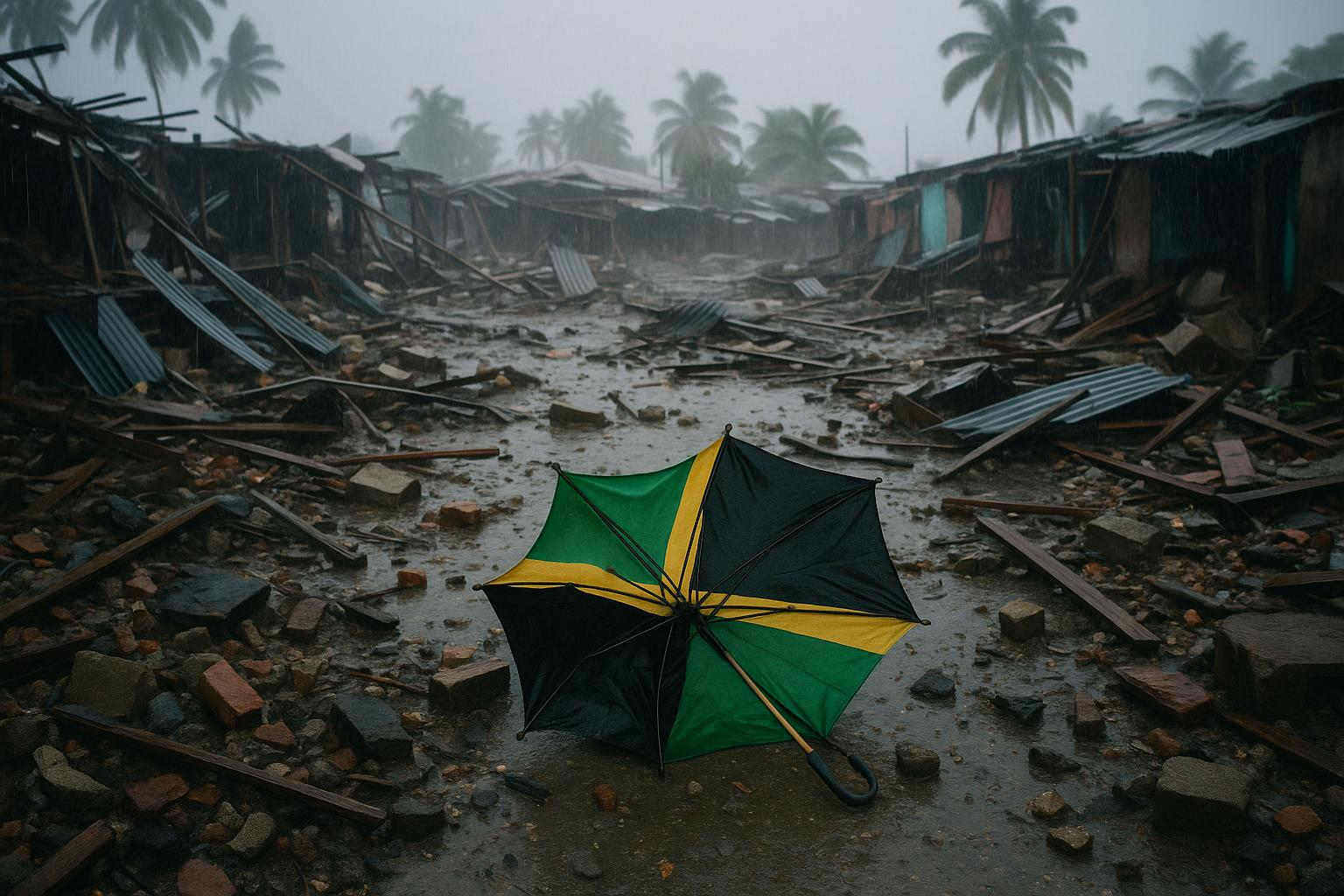The escalating severity and devastation of extreme weather events across the globe lay bare the deepening injustice of the climate crisis. Jamaica and neighbouring Caribbean countries are still reeling from the catastrophic impact of Hurricane Melissa, the most powerful storm ever recorded to hit Jamaica, which caused damage equivalent to nearly a third of the country's gross domestic product. Jamaican Prime Minister Andrew Holness reported that the destruction led to an estimated 8% to 13% drop in short-term economic output, severely affecting homes, essential infrastructure, and livelihoods. With some 120,000 structures damaged and over 90,000 families affected, the hurricane displaced thousands, while power outages continue to plague about half the island. Relief efforts face challenges from nearly five million tons of debris obstructing access to 27 isolated communities. The government plans to activate emergency measures such as suspending fiscal rules temporarily while seeking financial aid from regional partners and development agencies to rebuild with resilience in mind, including initiatives like underground power lines to withstand future storms.
The disaster’s timing, following the recent Hurricane Beryl's impact and ongoing recovery efforts, has intensified calls for climate-related aid and debt relief from wealthier nations with historically high emissions. Prime Minister Holness attributes the unprecedented storm intensity to rising sea temperatures driven by climate change. Despite Jamaica's close diplomatic ties to the UK, the £7.5 million in emergency humanitarian funding offered by the UK government has been widely criticised as inadequate given the scale of the crisis. The regional economic blow and human suffering starkly illustrate how developing countries face disproportionately catastrophic effects despite contributing minimally to global emissions.
Meanwhile, in Southeast Asia, Typhoon Kalmaegi has wrought severe destruction across the Philippines and Vietnam. With over 110 confirmed deaths and more than 120 missing, the storm forced over 200,000 people in the Philippines to evacuate, especially in central regions like Cebu province, where floodwaters submerged homes and caused extensive property damage. Recovery and relief operations are hindered by debris removal and damaged infrastructure. As Kalmaegi regains strength over the South China Sea, Vietnamese authorities brace for heavy rains and flooding, preparing to evacuate around 350,000 residents in vulnerable provinces. Airports face potential disruptions as warning systems remain on high alert. Compounding difficulties, the region is already grappling with displacement and destruction caused by a recent powerful earthquake, and a new storm forming east of Mindanao threatens to bring further hardship.
The latest disasters amplify the longstanding recognition within the international community that the countries most vulnerable to climate change impacts are those least responsible for causing global heating. This principle was reiterated by UN Secretary-General António Guterres at the opening of the COP30 climate talks in Brazil. He condemned the failure to uphold the 1.5°C target as a profound moral failure, deepening global injustices. The COP process acknowledges the devastating consequences of climate change in poorer nations by establishing a loss and damage fund intended to support recovery and enhance resilience in affected communities. Yet, despite consensus on its necessity, meaningful progress on funding commitments remains elusive this round. The existing climate finance pledges fall glaringly short of the scale required to address both immediate disaster relief and long-term adaptation needs.
The situation is particularly poignant in small island states, such as Jamaica, which collectively advocate for more justice and action through groups like the Alliance of Small Island States. Earlier this year, a legal advisory opinion from the International Court of Justice underscored the binding obligations of nations under climate treaties, lending weight to demands from these vulnerable countries for greater international responsibility. However, practical outcomes from such rulings have yet to materialise fully.
In this grim context, many communities worldwide confront the harsh reality that the terrible dangers of climate change are not distant threats but unfolding disasters. Jamaica’s absence from COP30 due to the ongoing crisis highlights this immediacy. The global failure to cut emissions sufficiently and to sufficiently finance adaptation and recovery measures reinforces the disproportionate burdens borne by already struggling populations. While the withdrawal of the United States from the climate process in previous years hampered momentum, other governments are urged not to use this as a justification for inaction. The collective task extends beyond transitioning to green energy; it includes recognising and fulfilling shared responsibilities to mitigate and manage climate losses and damages equitably. Countries facing the most severe impacts must not be left to shoulder these challenges alone.
📌 Reference Map:
- [1] (The Guardian) - Paragraphs 1, 3, 4, 5, 6
- [2] (Reuters) - Paragraphs 1, 2
- [3] (Reuters) - Paragraph 3
- [4] (AP News) - Paragraph 1
- [6] (Reuters) - Paragraph 3
Source: Noah Wire Services
